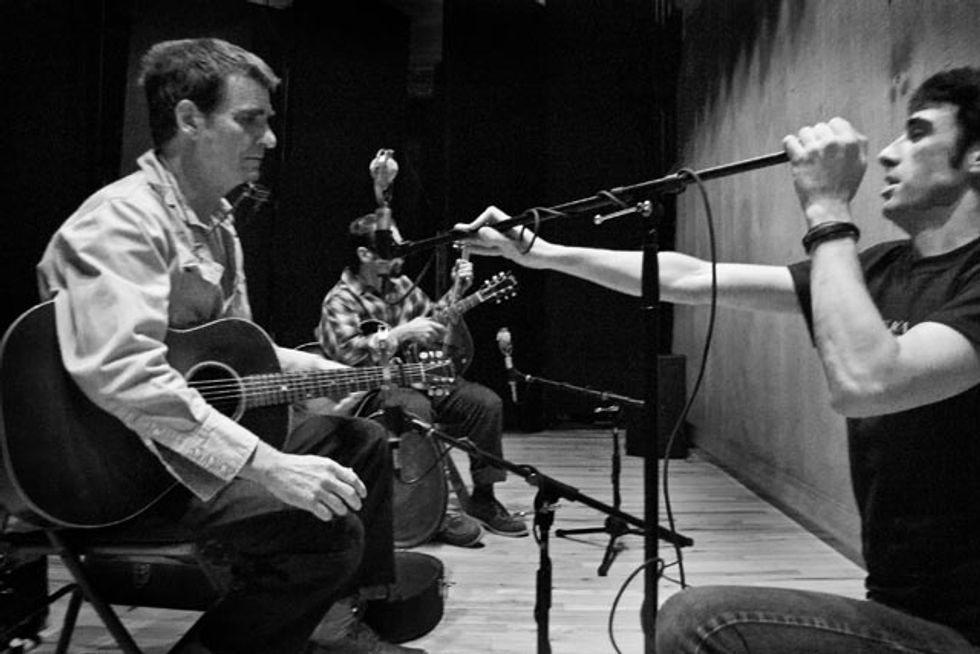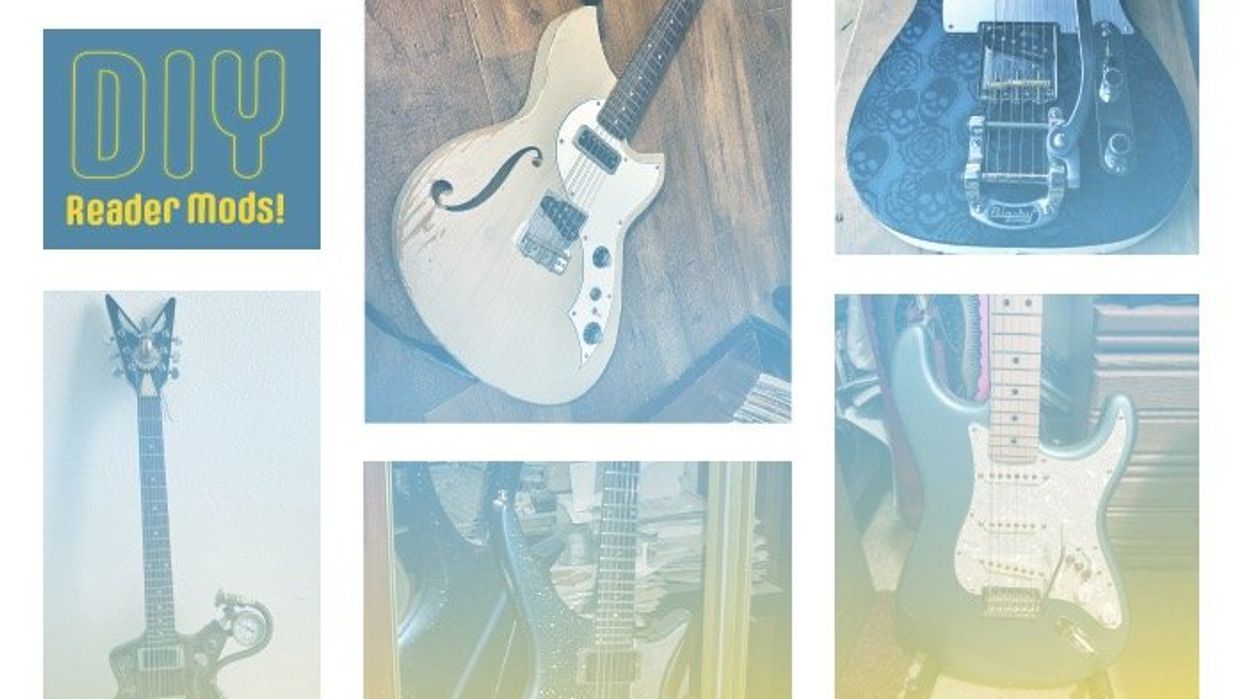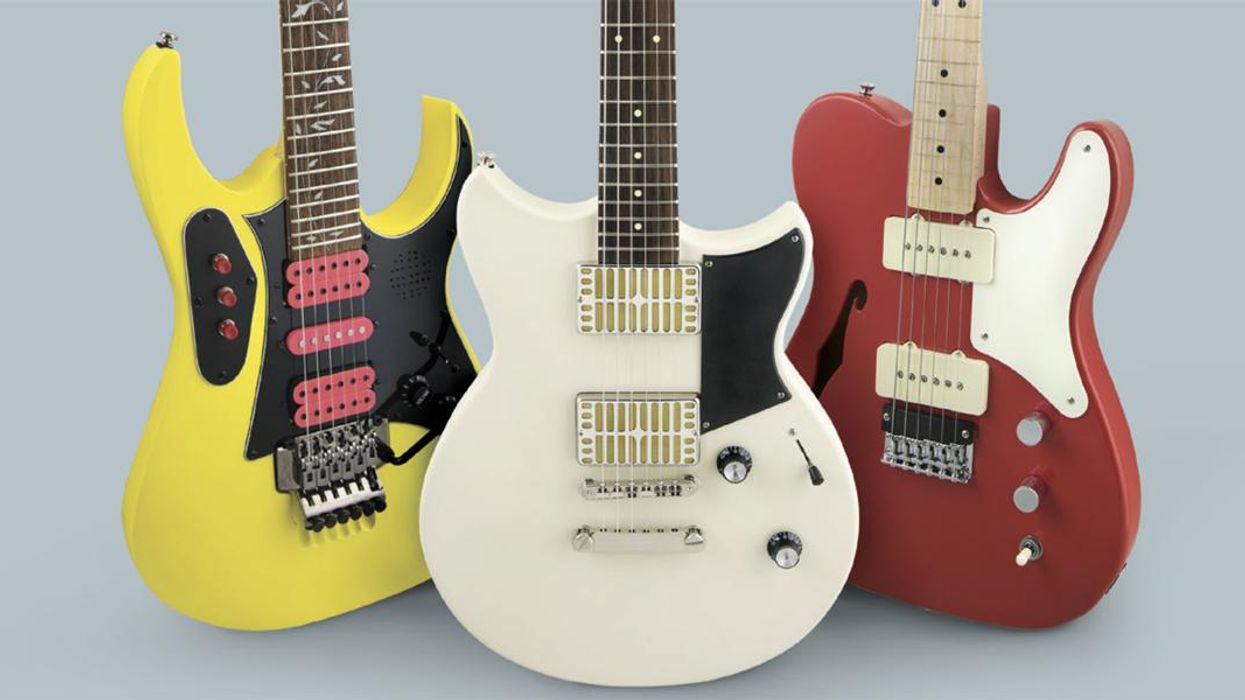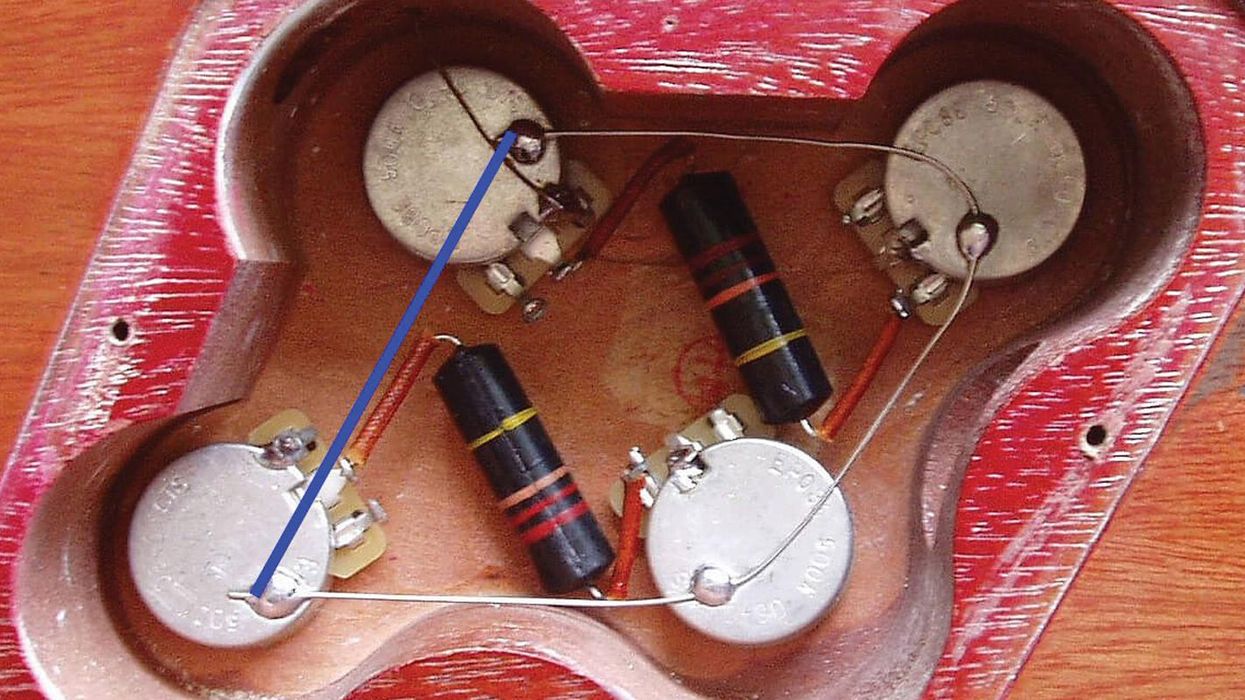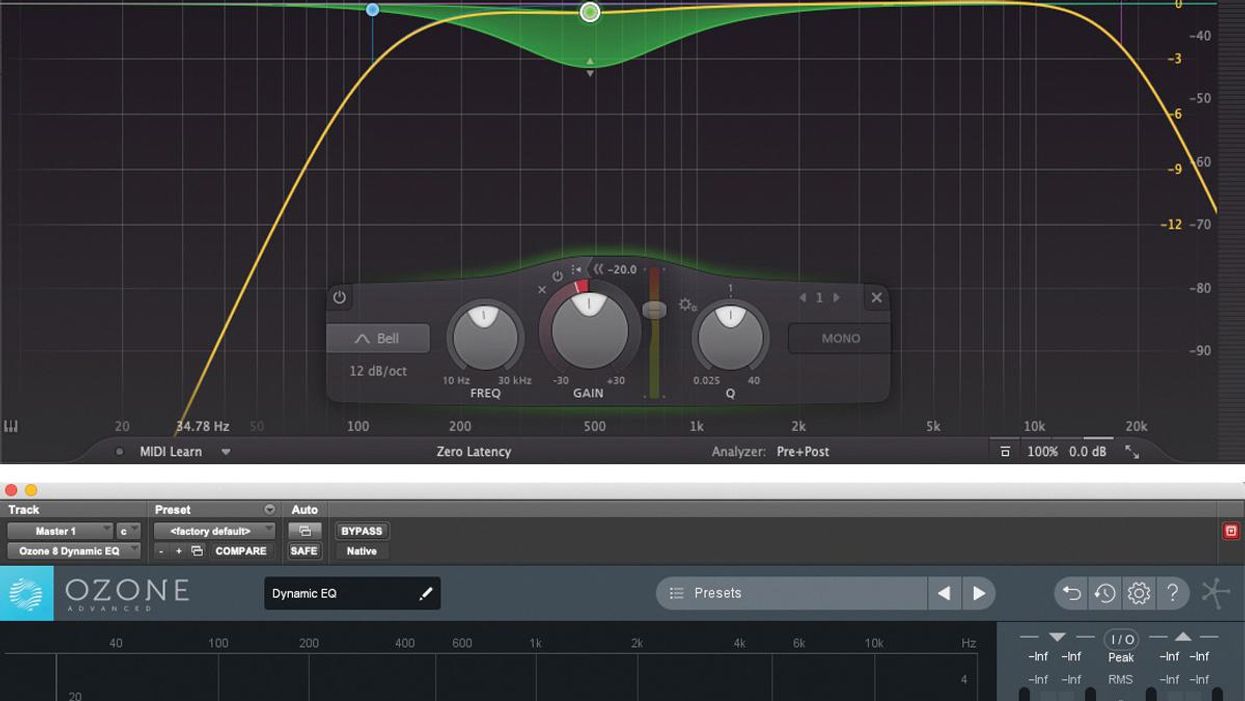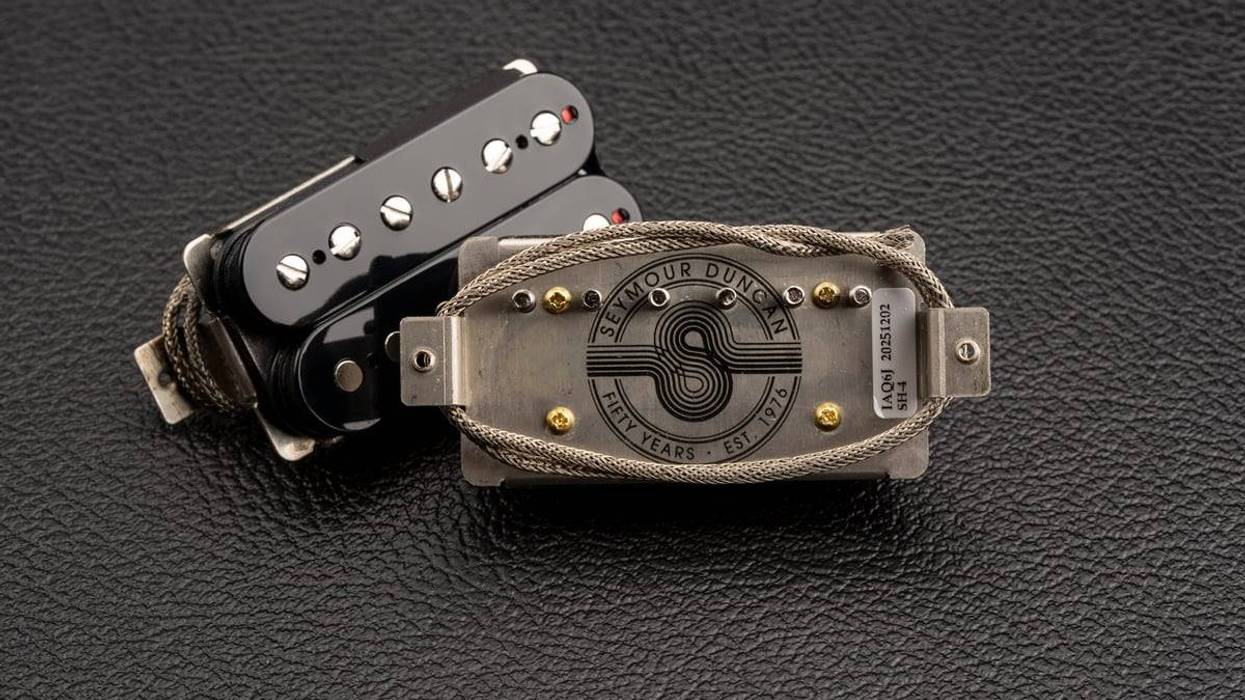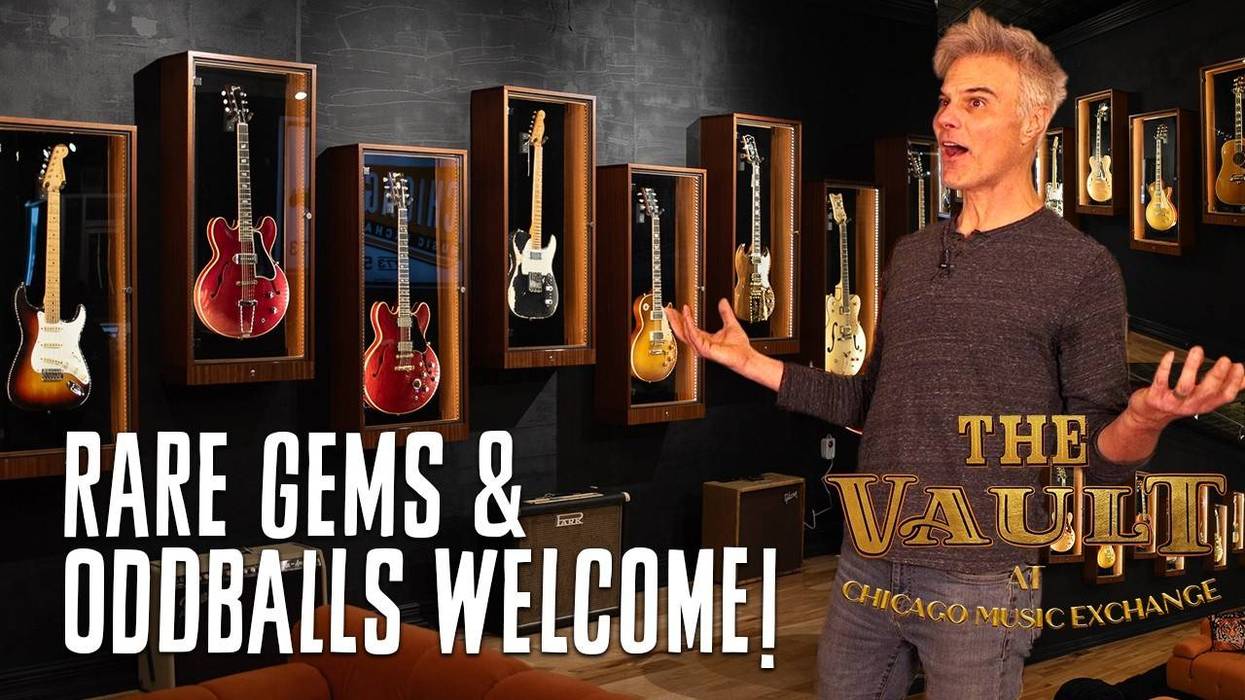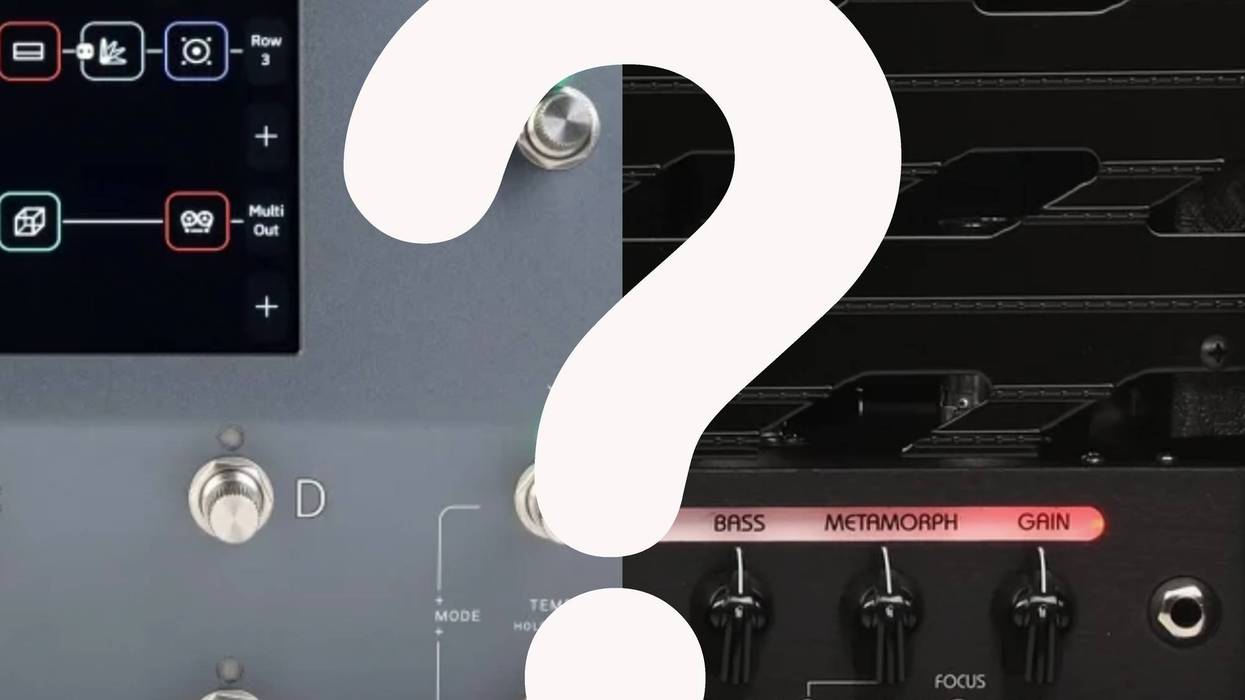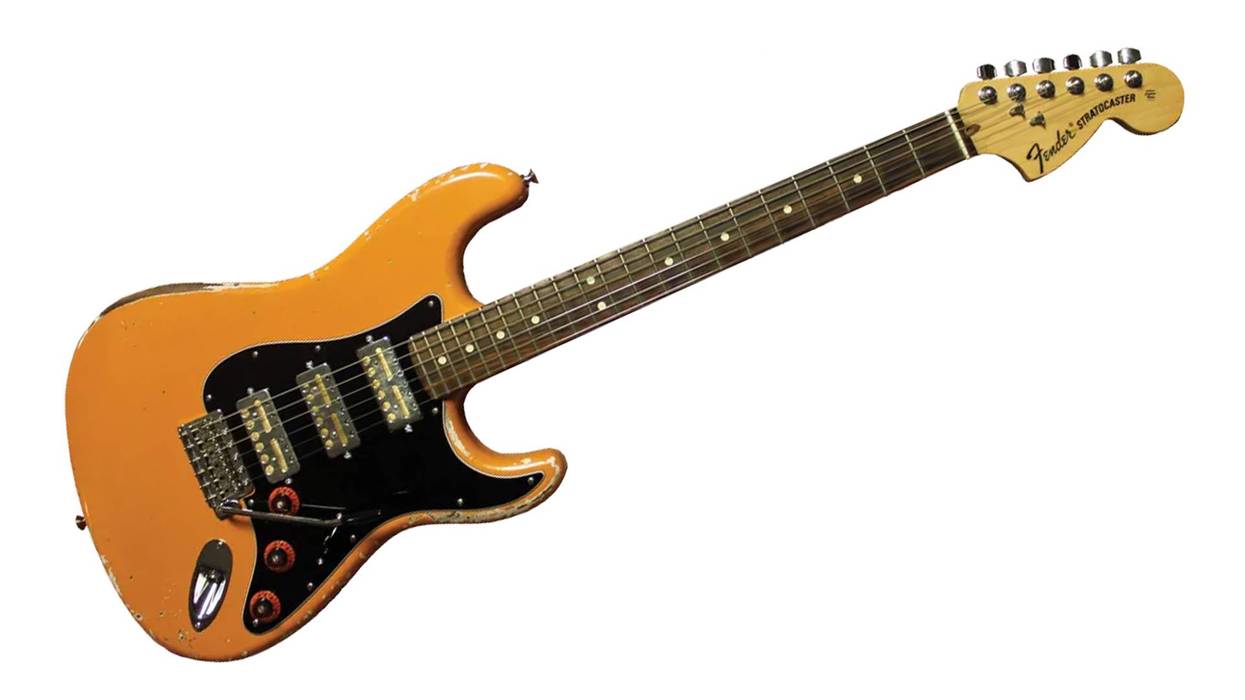Oh, PG Nation, these are indeed strange times. The type of gigs we’ve been used to are drying up as fewer and fewer places continue to book live music, and even fewer of those to book acoustic music. And yet, opportunities are everywhere for enterprising, creative performers who are not afraid to make something happen.
Sam Knutson is one such enterprising Iowan who became intrigued by the old opera houses that were once the centerpieces of so many of our small towns. A friend invited him to attend a concert at an opera house in a little town named What Cheer, Iowa. Sam was immediately fascinated with the space, and within a matter of days, The Iowa Opera House Project was born.
A Confluence of Events
Sam had recently stopped working with a band, and was busy studying “what people who play country blues do with their right hand, because that seemed like an important thing to know how to do.” Country blues guitar was developing at around the same time that the opera houses were flourishing, so he was unconsciously steeping himself in opera house culture already.
When he attended his first opera house concert in What Cheer, he noticed that both the audience and those staffing the opera house were quite elderly. What if, he wondered, younger generations aren’t being given a reason to be passionate about these spaces? Will they once again fall into disrepair and disuse? He was also thinking, “How could I put on a show here?”
Being familiar with stages and sound from several years working at the University of Iowa’s Hancher Auditorium, he asked for a tour of the building. “It was rebuilt after a fire in 1895, and it’s still all original,” Sam enthused. “Big hemp ropes, tall timbers, huge pulleys . . . It looks like a tall ship.”
The staff in What Cheer recommended that he check out the Pella, Iowa, opera house, so he called them up the next day. The manager of that space asked, “Have you read the book?” He responded, “There’s a book?” Published in 1994, Opera Houses of Iowa is a little dated now, as some of the opera houses are gone, and others have been refurbished and are functioning again, but it was an excellent place to start.
Sam put out some feelers to a few places, and within days three opera houses got back to him. “They said, ‘Come here and play, here’s how much it costs to rent the space,’ and I thought, Wow, that’s not very much ... We could do that.” And so Sam Knutson, Dave Moore, Dustin Busch, and Jordan Sellergren did, in September and October 2011.
Sound
engineer Pete Becker gets Dave Moore and Dustin Busch set up behind
the original curtain at The Wieting, Toledo, Iowa.
A Living, Breathing Thing
The more people hear about this project, the more they want to be part of it. Main Street Iowa, a program of the Iowa Economic Development Authority, reached out to The Iowa Opera House Project because they felt the two had similar goals, and wondered what they could do to help. The Preucil School of Music in Iowa City offered meeting space for free. Other organizations and even manufacturers have also come onboard. “I think people are thrilled with the romantic notion of the whole thing and want to embrace it,” Sam explained.
The team also came together very quickly. Pete Becker was an ideal choice for sound engineering because he has a strong affinity for traditional and acoustic music, and a great deal of experience recording in a multitude of spaces. Becker is recording every concert, in addition to running sound. Filmmaker Ken Moehn then joined the cause—the first two concerts were filmed and recorded, and he made a beautiful promotional package from them.
Iowa communities are also getting very excited about the project. “Because a lot of these theaters are in really small towns,” Sam continued, “some of them far apart, part of the plan is to figure out how to bring lots of people there, make it like a tourist event, where you can camp over there, or you can stay in that hotel, here are the restaurants you can eat at, and you can go fishing over there, and there’s going to be a great show of acoustic music in a space that’s acoustically awesome and beautiful to look at—a whole package.”
Ear Trumpet Labs, a manufacturer of very vintage-looking microphones, has signed on to the project as well, working with Pete Becker to create what they’re calling an Ear Trumpet Labs stage. Sam saw the Portland string band Foghorn recently, and they were using a single Ear Trumpet Labs mic at the front of the stage, with everyone gathered around. He was immediately taken with not only the look and the vibe of that approach, but by the quality of the sound. “When you’re using a single large diaphragm mic on the stage with a monitor pointing directly at it, there are going to be feedback issues. But feedback issues are controllable if you have a few tricks up your sleeve. So I ran it through its paces, made it do all of the bad behaviors that microphones in that situation will do, and dipped out all the frequencies that I needed to dip out in the space to make it so that it wouldn’t be possible to make that mic feedback. But I needed to present so little gain to that microphone when it came time for them to play into it, that I was able to put all those frequencies back in and there were no feedback issues at all. And after I thought about it for a day, I thought, it’s old-timey looking, it sounds great, it’s perfect for this show. Playing in a big, ring-like space with a large diaphragm mic at the front of the stage would be perfect.” After seeing the promotional materials and having a conversation with Sam, Ear Trumpet was ready to be part of the project, too.
This Show is Ready to Hit the Road
Shows start this month, at the Wieting Opera House in Toledo, Iowa. The project is gathering momentum on a daily basis now, as more and more communities with opera houses reach out, or reach back. They’ve had some very good press lately, and are looking at more opportunities to get the word out. “We did a show at the Englert [Theatre, Iowa City] in February. They did a great job and we got a lot of attention from that, and it’s made a lot of things possible. We want to have these relationships in place when we want to do a show in Blairsburg, or Eldon, with maybe some decent hunting and fishing nearby.”
There are unused venues, opera houses, theaters, and other music-friendly spaces, all over the country. Some require major surgery to be put back into use; some require just a little TLC and some elbow grease. It’s amazing how a project like restoring an opera house can unite a community, and how much pride, joy and renewal a functioning space like that can offer. Plus, there is no sweeter gig for an acoustic musician than to stand on a stage that was designed for real acoustic music, and play to a full house of happy, emotionally invested music lovers.
Visit theiowaoperahouseproject.com or facebook.com/TheIowaOperaHouseProject for more information, and maybe a little inspiration.
 Gayla Drake Paul is a guitarist, songwriter and writer, working as a soloist and with the Gayla Drake Paul Trio. Her CD, How Can I Keep From Singing, is in the Ten Essential CDs for Acoustic Guitarists at digitaldreamdoor.com. Her new CD, Trio Plus Three: The Luckiest Woman, can be purchased at CDBaby.com.
Gayla Drake Paul is a guitarist, songwriter and writer, working as a soloist and with the Gayla Drake Paul Trio. Her CD, How Can I Keep From Singing, is in the Ten Essential CDs for Acoustic Guitarists at digitaldreamdoor.com. Her new CD, Trio Plus Three: The Luckiest Woman, can be purchased at CDBaby.com.

